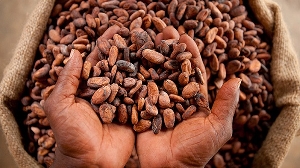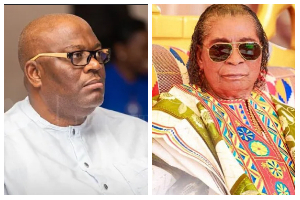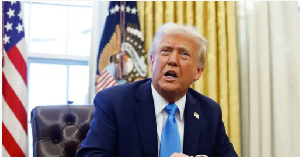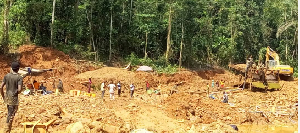For the first time in 32 years, the Ghana Cocoa Board (COCOBOD) will finance the purchase of cocoa beans and its operations domestically.
The decision, effective the 2024/2025 cocoa season, means it would finance the purchase of beans locally without the annual syndicated loan.
“After 32 years of going for loans offshore to buy cocoa beans, we have taken a bold step not to go for syndicated loan for the 2024/2025 cocoa season,” Chief Executive of the COCOBOD, Joseph Boahen Aidoo, told a news conference in Accra on Tuesday.
“We want to wean ourselves off offshore funding and be self-financing. Thirty-two years is enough to learn lessons and we have and we think it is time to wean ourselves from offshore funding,” he reiterated.
The decision, he said was not out of desperation or lack of investor interest in the syndicated loan.
By financing the purchase domestically, Mr Aidoo said Ghana would be saving US$150 million in interest payments on the annual syndicated loan.
“We are looking for US$1.5 billion this crop season and looking at the interest rates last year, which were over eight per cent, plus the cost, it means that we can save more than US$150 million by the decision not to go offshore,” he noted.
Asked what the funding source would be, Mr Boahen said same would be communicated in due course.
The upcoming cocoa season which commences in September, he said would be a turnaround year for the COCOBOD as it estimates to purchase 650,000 tonnes.
Mr Aidoo said the welfare of the cocoa farmer and the national interest remains the guiding principle of the COCOBOD’s operations and its decisions are geared towards same.
To that end, Mr Aidoo said the COCOBOD has implemented various initiatives to address the challenges derailing the growth of the cocoa sector.
He itemised the interventions to include the Cocoa Rehabilitation Programme which has seen more than 40,000 hectares of cocoa farms across the country, and the productivity enhancement programmes like pruning, hand pollination, and mass cocoa spraying amongst others.
He said in as much as the sector is challenged, pronouncements that it would collapse in five years were exaggerations which does not reflect the facts on the ground.
“We urge stakeholders to support our efforts and work together to address the challenges facing the sector.
“The negative reports circulating in the media (that the sector will collapse) are not only inaccurate but also disregard the extensive efforts and investments being made to secure the future of the industry,” he stated.
Meanwhile the Minority in Parliament in a statement issued by its leader, Dr Cassiel Ato Forson, claims the international banks rejected COCOBOD’s $1.5 billion loan request, because they were concerned that the available cocoa would not suffice to cover both existing and new commitments.
It said the rejection was due to COCOBOD’s poor financial condition and a dramatic drop in cocoa production, which has fallen from 969,000 metric tonnes in 2016/2017 to just over 400,000 metric tonnes in 2023/2024.
It claimed that mismanagement has led COCOBOD to roll over 250,000 metric tonnes of cocoa commitments and raised doubts about its ability to meet financial obligations.
The statement also said COCOBOD has faced over GH¢11 billion in losses under the current administration, and its claim of avoiding foreign loans was seen as an attempt to hide its declining creditworthiness and the severe crisis in Ghana’s cocoa sector.
Business News of Thursday, 22 August 2024
Source: ghanaiantimes.com.gh













